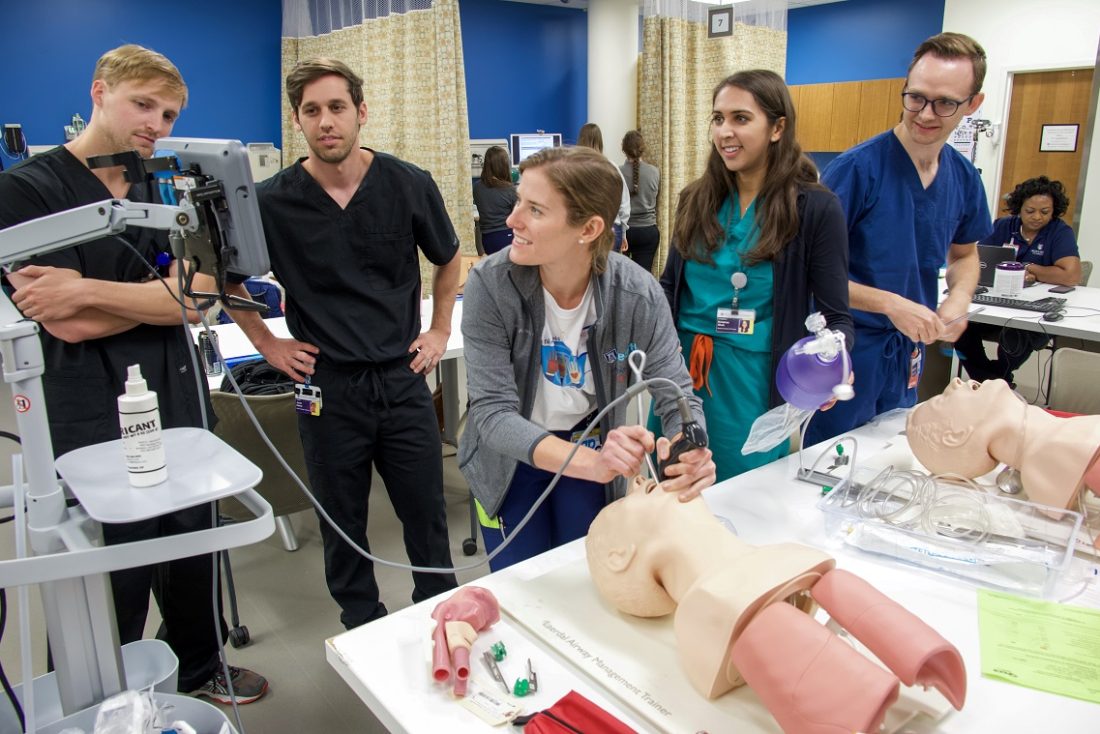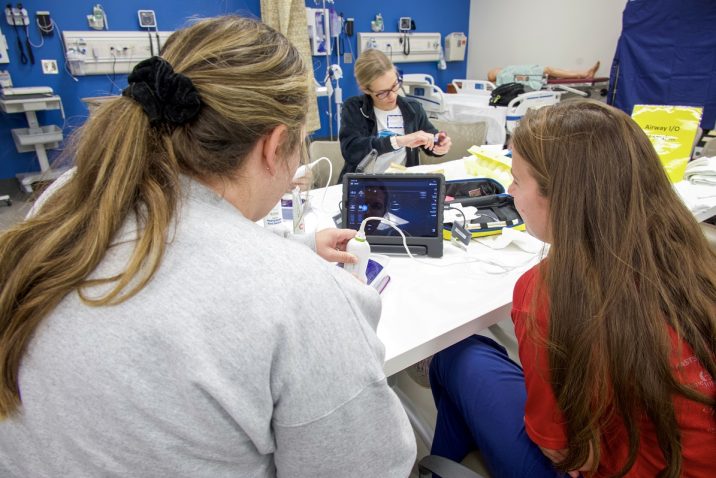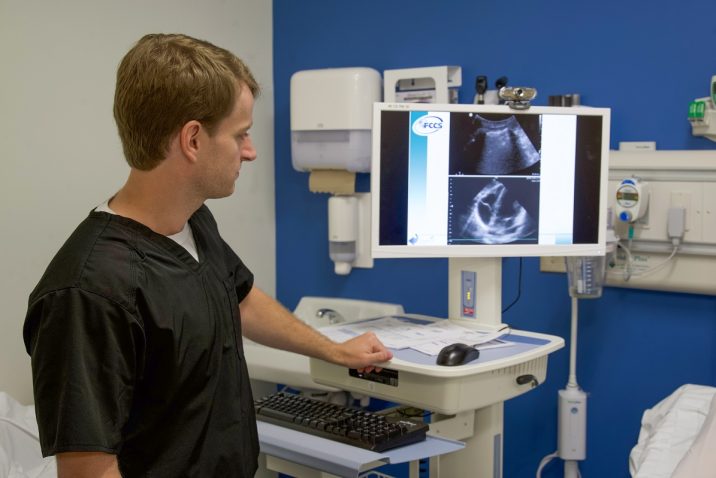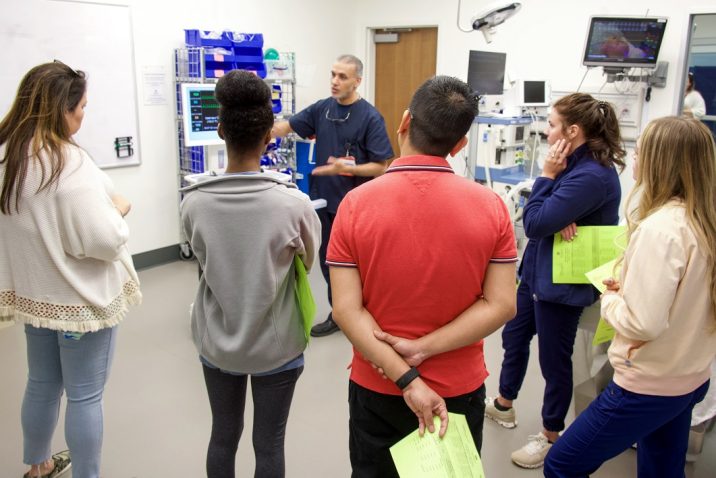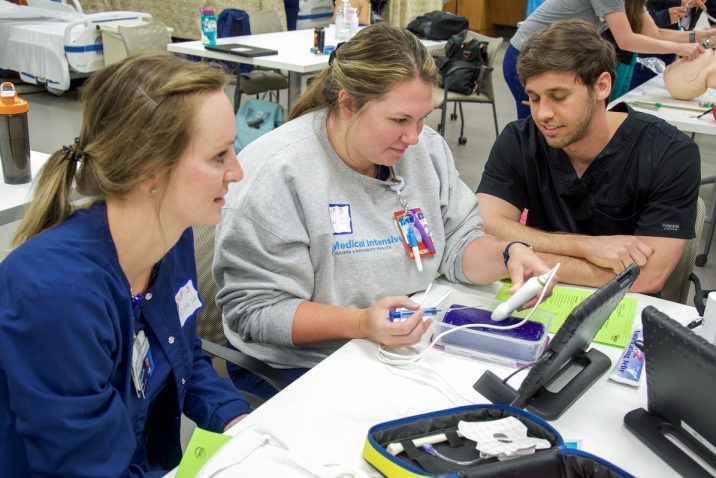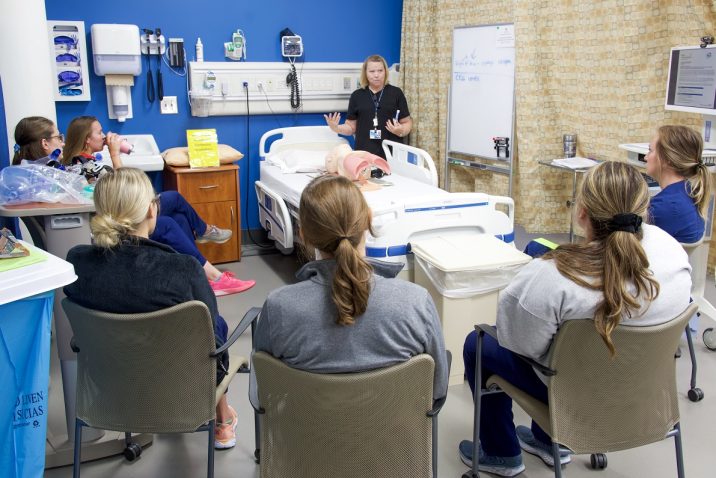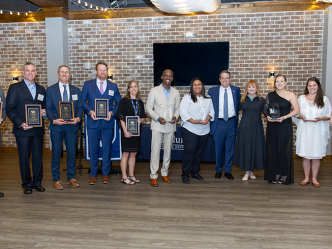Considering recent high nurse turnover and the extensive use of traveling nurses, Augusta University and AU Health recognized a need for standard training on how to manage sick patients in the ICU. Out of it came the Fundamentals of Critical Care Support (FCCS) course developed by the Society of Critical Care Medicine (SCCM).
Dr. Vikas Kumar, associate professor in the Department of Anesthesiology and Critical Care Medicine at the Medical College of Georgia, and Christie Forehand, critical care pharmacist in the medical ICU at AU Health, co-organized the event to give nurses who don’t normally work in the ICU a two-day course to better recognize when problems in patients arise, since every second can possibly save their lives.
“The intent of this course is to provide both new and experienced providers and also staff that doesn’t usually work in the ICU, but maybe got pulled to do some ICU or intermediate shifts, a crash course in taking care of critically ill patients,” said Forehand.
“Making the diagnosis and making the decision to call for help becomes critical. Everybody can recognize if things are going bad, but timing is critical. The earlier you recognize it, the better the outcome,” said Kumar.
With so many new nurses and graduates who haven’t practiced in the ICU before, this was an investment to make them feel engaged and help them practice teamwork.
“One of the focuses of the Society of Critical Care Medicine is really emphasizing the team effort that it takes to take care of a critically ill patient,” said Forehand. “It’s not just the physician, it’s not just the nurse, it’s a whole team effort and being able to work well together as a team is a very important aspect of that.”
Forehand knows the importance in investing in the people they hope will stay, and thinks this is a good opportunity to accomplish just that.
Over 130 participants took part in this course where they received online lectures, pre- and post-tests and then hands-on experience in the Interdisciplinary Simulation Center. They received training from skilled instructors in anesthesia, respiratory therapy, pharmacy and medical ICU — and also a group of talented medical students. After completing training, the learners earned a FCCS certificate from SCCM, which is an internationally recognized training certificate.
To cover all costs associated with the course, grants were obtained from the Society of Critical Care Medicine and from the Centers for Disease Control and Prevention. They covered everything from the time in the simulation center to any literature that was needed.
Both Kumar and Forehand said this was an ambitious undertaking considering all the participants, but they would like to continue the program and run similar sessions on a routine basis.
“Our vision is that we will offer this class every three to four months with all new — specifically medical ICU nurses — who will go through this as a formalized part of their onboarding nurse education,” said Forehand.
This all falls in line with similar courses that have been done in the past.
“We have done many critical care courses in the past at Augusta University for residents and nurses for more than 15 years, and also for learners in countries like Ghana, Nigeria, Pakistan and the Philippines. But this course for our nurses is the largest in quantity and best in quality because of great teamwork and interdisciplinary support,” added Kumar.
 Augusta University
Augusta University
